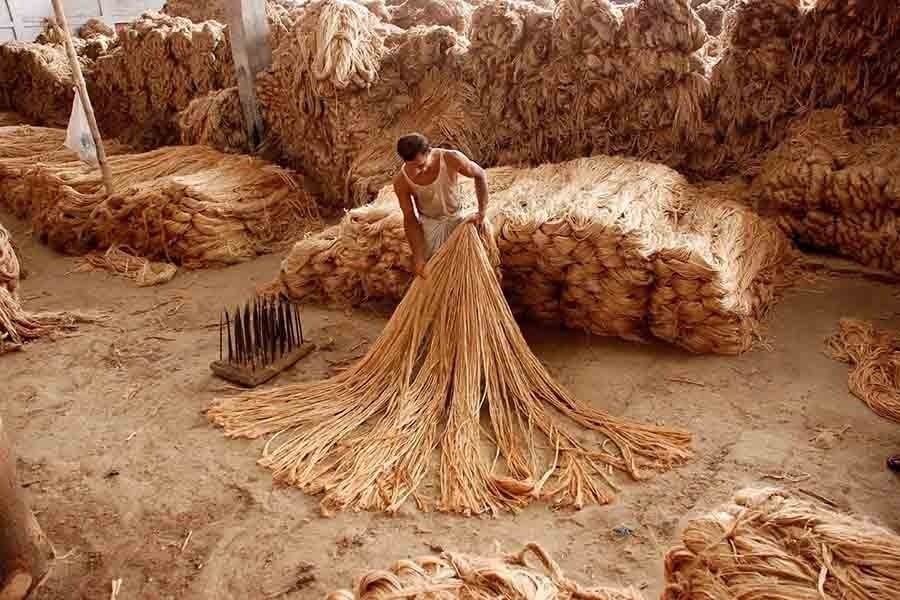
Published :
Updated :

The illogical ban on export of jute and jute goods from Bangladesh to India through land ports has dealt a severe blow not only to the jute industry but also to the cultivation of this cash crop. Only one option has been left open for millers and exporters of finished products and raw jute in Bangladesh and that alternative proves highly disincentive to jute trade. As high as $100 additional freight charge on each tonnne of jute or jute products has to be borne by exporters if the alternative sea route to Kolkata via Nhava Sheva Port in Maharashtra is used. The atrociously long detour is likely to hurt not only jute trade between the two neighbours but also make the products costlier in India.
It certainly is a political decision by the Narendra Modi government that looks for killing two birds with one stone. The central government of India and the state government of Mamata Bandopadhya are at loggerheads on several issues. Jute trade between West Bengal and Bangladesh thrived because of modernisation of jute mills near Kolkata with demand for raw and semi-processed jute from Bangladesh. This explains the trade dispute that has been deliberately initiated by the receiving country following the fall of Sheikh Hasina's regime. This particular move and the drive against Bangla-speaking nationals, targeting extradition of some, have backfired politically with Mamata's popularity now soaring and negating any possibility of BJP breakthrough in West Bengal. The economic costs will be heavy for both West Bengal and Bangladesh. There is no chance the state government can bypass the central government in striking any trade deal.
So, how can Bangladesh overcome the crisis? Jute millers and exporters are clamouring for compensation or restoration of the cash incentives at the 60 per cent rate allowed before 2024 and also waiver of export duties. Well, such concessionary measures can at best be an emergency or short-term solution in a competitive market but the country now needs to have a long view of the issue. Bangladesh cannot save its jute industry or the crop itself as an export good depending permanently on another country. In a way, it is reaping the fruits of the seeds it sowed. Or, the local industry of the once golden fibre would not have come to this moribund state. Jute industry in Kolkata also disintegrated at one point but a political decision to revive it worked wonder.
Bangladesh should also think of developing a sustainable modern industrial base for jute. The industry was systematically destroyed and wavering on the part of successive governments was responsible for a decline of the industry. At a time when the entire world is raising voice against polythene and plastic, this natural fibre stands a sure chance of making a turnaround. But knowing how to use it as a most-sought-after product around the world is of paramount importance. The biodegradable poly bag called 'sonali bag' invented by a Bangladeshi scientist Dr. Mubarak Ahmad Khan could lead the way but for the political indecision. Still time is not out. Government support in developing factories and mills fashioned on the prototype the scientist developed may provide an answer to its limited capacity as well as problems facing export of jute and jute goods. There is a need for developing mills of mass production in order to bring down the price of sonali bags. Thus the golden days of the golden fibre can stage a comeback with no need for crying hoarse over imposition of anti-dumping duty and ban on use of land port by the big neighbour.


 For all latest news, follow The Financial Express Google News channel.
For all latest news, follow The Financial Express Google News channel.